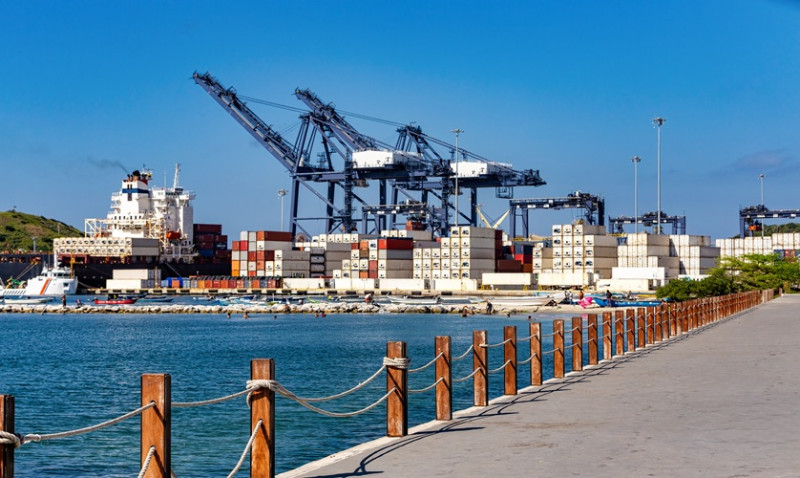
Are you looking to enter the exciting world of international trade? Becoming an export-import agent or broker can be a lucrative and rewarding career, especially for entrepreneurs in the UK with a knack for negotiation and a passion for global business. Whether you’re already running a home improvement or trade business, or you're just starting out, this guide will walk you through the essential steps to launch your export-import journey effectively.
What Is an Export-Import Agent or Broker?
An export-import agent, also known as a broker, acts as a middleman between buyers and sellers in different countries. Rather than owning or shipping goods themselves, brokers earn commissions for bringing together international businesses and facilitating trades.
This role involves identifying market opportunities, negotiating deals, handling paperwork, and ensuring that products comply with both export and import laws. It’s a flexible and scalable role — you can operate from home with minimal overhead, making it attractive for young professionals, creatives and even experienced tradesmen looking to pivot or add another revenue stream.
You’ll work with a wide array of goods — think furniture, architectural hardware, home décor items, even building materials like natural stone or timber flooring — connecting UK businesses with overseas suppliers or buyers.
Essential Skills and Traits You’ll Need
To succeed as an export-import broker, you’ll need a keen eye for details and excellent communication skills. Negotiating effectively between different cultures and languages is central to this role.
Here are the core skills to develop:
- Sales and negotiation: You’ll be the one finding and closing deals.
- Market research: Understanding which products are in demand and where.
- Networking: Building relationships at trade shows, via chambers of commerce, and online B2B platforms.
- Legal and documentation knowledge: Knowing which documents are required for different goods and destinations.
- Problem-solving: International trade comes with plenty of logistical and regulatory challenges. Be ready.
Step-by-Step Guide to Getting Started
1. Conduct Market Research
The first step is to decide what products or industries you want to work in. Focus on a niche where you may already have experience or contacts – for example, construction materials, lighting, or home interiors. Look at what’s in demand in overseas markets and what UK businesses are searching for abroad.
Use platforms like the UK Department for Business and Trade, Global Trade Review, and Import/Export directories to research trade trends. Understanding your niche will help you differentiate yourself from generalist brokers.
2. Choose a Business Structure
Next, you’ll need to officially register your business in the UK. Depending on your preference, you can set up as a:
- Sole Trader (simplest form, but personally liable for debts)
- Limited Company (separate legal entity, better for scalability)
- Partnership (if working with someone else)
Register with HMRC and get your UTR (Unique Taxpayer Reference) if operating as a Sole Trader, or incorporate through Companies House if launching as a Limited Company.
3. Develop a Strong Online Presence
Today’s trade deals often begin online. Having a professional website with your services, areas of expertise, and contact information is crucial. Use high-quality images, SEO-optimised content, and client testimonials to build trust.
Invest time in B2B online marketplaces such as Alibaba, Made-in-China.com, and TradeKey. Also, join UK-specific trade directories and export networks like the UK Export Finance or regional Chambers of Commerce.
4. Build a Network of Suppliers and Buyers
Your power as a broker lies in your network. Research and reach out to manufacturers, wholesalers, and importers both in the UK and abroad. You’ll need to build trusted relationships and understand their product lines, pricing, and shipping policies.
Consider sourcing from regions like China, India, Eastern Europe, and Vietnam – popular origin markets for construction materials and home furnishings. Meanwhile, UK-built goods such as crafted interiors, stoneware, and ironmongery are desirable to many overseas buyers.
Attend international trade shows, both virtually and in-person, to build your contact list and learn from experienced brokers.
5. Understand the Legal Requirements
Moving goods internationally involves a host of compliance and documentation. These vary by country, type of product, and destination, so you must research thoroughly. Common documents include:
| Document | Description |
|---|---|
| Commercial Invoice | Detailed sales bill from seller to buyer. |
| Bill of Lading | Shipping document issued by carrier to acknowledge receipt of goods. |
| Packing List | Specifies contents and packaging of shipments. |
| Certificate of Origin | Confirms product’s country of manufacture. |
| Import & Export Licences | Depending on the goods, countries may require permits. |
For UK-based brokers, the GOV.UK website is a vital resource for updates on new regulations post-Brexit.
6. Partner with Freight Forwarders and Customs Brokers
While you won’t need to handle logistics yourself, working with experienced freight forwarders and licensed customs brokers will ensure smooth deliveries. These professionals manage warehousing, shipping, insurance, and customs declarations.
Establish solid relationships with freight partners who operate smoothly across your chosen regions. You can then offer end-to-end services to clients, increasing the value you bring to the table.
7. Set Your Commission and Monetisation Strategy
Most brokers charge a commission, which is a percentage of the total value of the goods traded. This typically ranges from 5% to 15%. Depending on your niche and the volume of deals, you might also charge sourcing or consultancy fees up front.
Be transparent about your terms, provide detailed quotes and service agreements, and clarify who pays for warehousing, insurance, and shipping fees.
Benefits of Becoming an Export-Import Agent
As a broker, your role is flexible and scalable – ideal whether you want to build a part-time income or a full-time international trade business. Other key benefits include:
- Low startup costs: No need for inventory or warehousing.
- Diverse product options: Work across industries from décor to construction.
- Global opportunities: Access clients and suppliers worldwide.
- Leverage existing industry contacts: Tradesmen, builders, and designers already have networks you can tap into.
- Work from anywhere: All you need is a laptop and phone connection.
This is also a highly collaborative business where trust, diligence and consistent communication can help you build a sustainable income and long-term career.
Final Thoughts
Becoming an export-import broker isn’t just about buying and selling — it’s about building relationships, solving cross-border problems, and creating value between businesses. For UK-based DIY enthusiasts, interior professionals, and tradespeople seeking a new challenge or a side-business, it's the perfect blend of business development and international adventure.
Start small, learn continuously, and grow your trade network step by step. With persistence and adaptation, your global journey as an export-import agent can be both financially and professionally rewarding.






